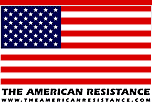Hemisphere, Inc. - If trade pact stays on course, 800 million people can say goodbye to democracy
Articles
QUEBEC CITY — While preparing to host the third Summit of the Americas here, Canadian leaders realized a lot of people would have a lot to say about the main agenda item: a proposal to create the world’s largest trade bloc. So the government built a 10-foot-high cement and chain-link barricade to keep those voices out. The barricade sealed off four square miles of the city, including the historic cliff-top citadel where 34 heads of state were to meet April 20–22.
The wall was part of a $22 million security operation, the largest in Canadian history, that mobilized more than 5,000 agents of the Royal Canadian Mounted Police, the Quebec provincial police and municipal forces. The federal government reserved all hotel rooms within 55 miles—a total of 11,000—to avoid any vacancies for protesters...
Yet tens of thousands of protesters managed to come here. On the summit’s opening day, when they tried to get past the barricade separating them from the leaders, rows and rows of riot-clad police fired endless amounts of tear gas. Next came plastic bullets, attack dogs, pepper spray and water-cannon fire (a few protesters fought back with rocks, bottles and hockey sticks). Over the next three days and nights, toxic fumes wafted into neighborhoods, forcing residents to run for cover.
Inside the perimeter, ironically, a highly publicized summit resolution claimed that free trade depends on “the values and practices of democracy” and warned nations to avoid any “unconstitutional alteration or interruption of the democratic order.” The United Stated helped water down the clause by removing trade sanctions against non-democratic nations, rendering it little more than a PR decoration.
The toothless clause befits the anti-democratic process behind the proposed Free Trade Area of the Americas. The FTAA has taken shape through secret negotiations between trade officials guided by representatives of more than 500 corporations. The negotiators have kept civil-society organizations and even national parliaments from seeing the text, let alone participating in the talks.
The agreement itself, planned to encompass every nation in the hemisphere but Cuba, threatens to turn back the clock on democracy and sovereignty for 800 million people. Like its forerunner, the North American Free Trade Agreement, the FTAA would empower transnational corporations to win suits against a national government merely because a labor or environmental protection impinged on profits. And, according to leaked documents, FTAA negotiators aim to go beyond NAFTA by compelling nations to privatize virtually all government services.
These plans depend on minimizing public input...
Then-President George H.W. Bush first proposed a hemispheric trade bloc in 1991. The first Summit of the Americas, a 1994 gathering in Miami, set an 11-year timetable to negotiate and implement the FTAA. At the summit, President Bill Clinton held out Mexico’s economic policy as the model for reform, and he held out NAFTA—signed by Canada, the United States and Mexico—as the model trade pact.
To qualify for NAFTA, Mexico amended its constitution to wipe out its indigenous population’s traditional communal land rights. The change helped convince the Zapatista National Liberation Army to launch an armed indigenous revolt in the southern state of Chiapas on January 1, 1994, the day NAFTA took effect.
Since NAFTA’s inauspicious debut, average Mexicans have seen few benefits despite a flood of foreign investment....
Back in the United States, NAFTA has devastated workers. A Cornell University study of more than 600 union-organizing campaigns found that 62 percent led to management threats to relocate to Mexico.
“This model has been road-tested and failed,” said Public Citizen’s Wallach, holding up a tattered copy of NAFTA. “It cannot be used as a model for the Americas.”
Yet that’s precisely the plan. The second Summit of the Americas, held in 1998 in Santiago, Chile, launched the FTAA negotiations officially. One provision, modeled on NAFTA’s Chapter 11, would elevate corporations to the legal status of national governments. Under Chapter 11, a nation with laws affecting a company’s ability to generate profits risks seeing an unaccountable tribunal assess damages and overturn the offending measures. The “judges” are private lawyers hired to rule in secret proceedings open only to company representatives and the three NAFTA governments....
Steve Porter, senior attorney of the Washington, D.C.–based Center for International Environmental Law, said there are no citizen rights under consideration for the hemispheric accord. “The FTAA investment chapter expands corporate rights and represents one of the broadest deregulatory and anti-democratic agendas I’ve ever seen,” he said.
... according to documents leaked last year, FTAA negotiators are following the path of the World Bank and International Monetary Fund with plans to force nations to privatize all types of government services. The goal is for corporations to control everything from education to transportation, from health care to electricity, from mail delivery to tap water....
“The NAFTA experience is an important lesson for any future trade agreements,” José Miguel Vivanco, executive director of the Americas division of Human Rights Watch, said before the Quebec summit. “Our research shows that agreements on labor will never work without the active support of the countries involved. In the case of NAFTA, these three countries have actually worked to minimize the impact of the labor provisions.”...
A unifying theme outside the official summit was that profits do not equal democracy. “There is a new dictatorship emerging, that of corporations given the right to strike down the laws of democratically elected people,” said Tony Clarke, vice chair of the Council of Canadians, a day after protesters tore down part of the wall. “And then they wonder how people can engage in civil disobedience? We are building a mass resistance against a corporate regime that cannot have moral and political authority.”
Read the complete article.
In order to use copyrighted material from this site for purposes of your own that go beyond 'fair use', you must obtain permission from the copyright owner.

